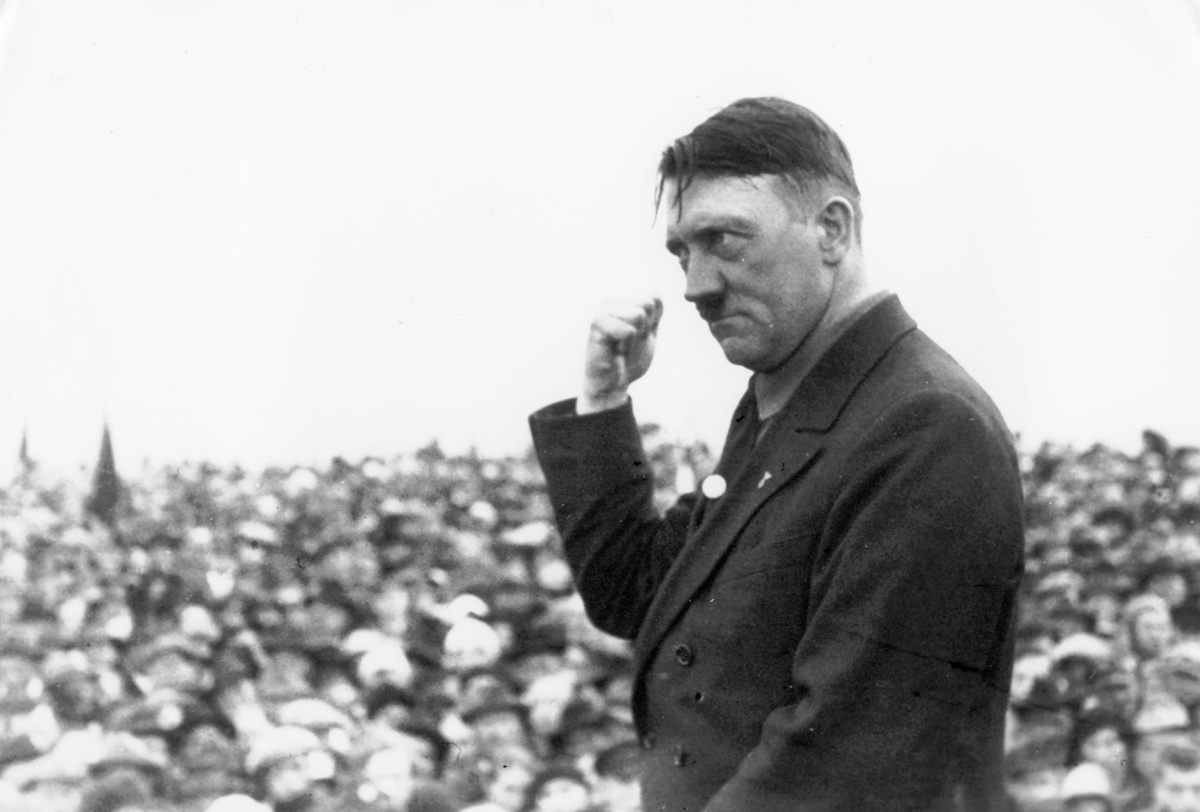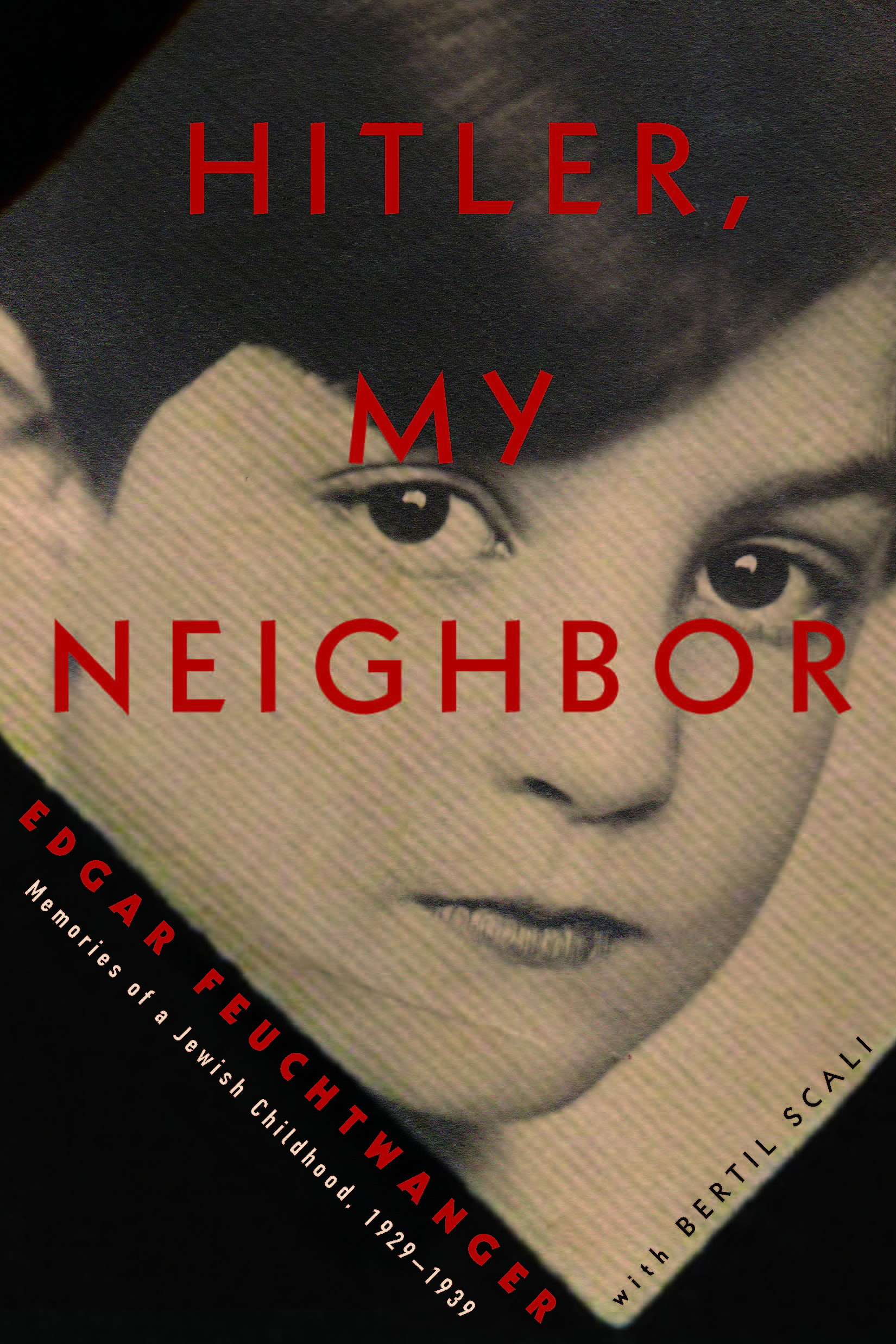
The following is an excerpt from Hitler, My Neighbor: Memories of a Jewish Childhood, 1929-1939 by Edgar Feuchtwanger with Bertil Scali, translated by Adriana Hunter. In this passage, Feuchtwanger — who grew up Jewish in Munich, across the street from Adolf Hitler’s house — recalls the lead-up to the 1930 elections that saw the Nazi party gain a serious foothold in the Reichstag:
Since we’ve been home from our vacation, there’s been talk of nothing but politics in the house. Uncle Lion’s book has been published. It’s in all the bookshops. When we go for our walks, Rosie points it out to me in windows. I feel proud when I see it. The bookseller told us it seems to be selling better than Mein Kampf. I know it says bad things about Hitler; I also know our neighbor’s a dangerous man. My parents, my grandparents, and Beate’s relations too are all saying the same thing: he’s a liar and a thief. Even the milkman talked to Rosie about it. He told her Hitler was taking all the milk for the neighborhood so there was less for everyone else. My mother was furious. According to my father, the milkman was wrong because no one can requisition their neighbors’ milk. He also said that Hitler couldn’t single-handedly drink the usual milk consumption of several families. Otherwise it would be good news because it would kill him!
He’s right in front of us, outside his building. We’ve stopped in our tracks. Rosie is stock-still. I can see he’s cut himself shaving, as my father sometimes does. He has blue eyes. I didn’t know that. You can’t see that in photos.
I thought his eyes were completely black. I’ve never seen him so close up. He has hairs in his nose, and a few in his ears. He’s shorter than I thought. Shorter than my father. Shorter than Rosie. Passersby stop, like us. He looks at me. I should look away. But I can’t. I stare at him. Maybe I should smile? I’m his neighbor, after all! Does he recognize me? Does he know I watch him from my bedroom? Can he see inside our house? Does he watch us eating in the dining room? Does he know I’m Jewish? I don’t want him to hate me. Or my father. Or my mother. Are people looking at me? He’s climbed into a dark car, black as night, its lines as hard as stone.
***
On the way home from the park with Rosie, I ran along the sidewalk, rolling my hoop ahead of me with little nudges of the stick. Uncle Lion was at home when we reached the house. I’ve come to sit on the floor in the sunshine in the drawing room, to listen to what they’re saying. My mother looks worried, my father serious. Only Uncle Lion is still smiling. They’re all looking at a newspaper open on the coffee table.
“Look what they’re doing, it’s disgusting,” says my father.
There’s an illustration of a great fat man wearing a bow tie; he has a big nose and eyebrows like bushes.
“Don’t get in a state about nothing,” says Uncle Lion. “Wait till you see the review by Herr Goebbels himself, the newspaper chief and a regular guest at your neighbor’s table. He says they’ll make me pay when they’re in power. What do they mean by that? He doesn’t say. Probably because it’s not likely to be legal. A public lynching? Murder? Torture? There’s no knowing what torments the Nazis will dream up for those they despise, in other words nine tenths of the planet.”
“Could they ever come to power?” my mother asks.
“I don’t know,” Uncle Lion sighs. “Goebbels certainly managed to get himself elected to the Reichstag. Do you know what he said? That he and the eleven other Nazi congressmen were infiltrating the Reichstag like wolves in a sheepfold. The Fascists had no trouble taking power completely in Italy. The elections are in a month, in September. Everyone’s expecting them to improve on their last performance. They had only a 3 percent share of the vote three years ago. But unemployment has gone through the roof since then. The Wall Street crash is still casting its long shadow over us. German companies can’t sell anything anymore, they’re running out of cash. The banks have stopped lending, and their customers are going bankrupt one after another. People are desperate. Because Hitler and his gang have never been in power, they’re being credited with every virtue. Well, let’s say that some people believe—or hope—that things would be better with them in power, given that their leader says so with such conviction. And the culprits have been identified. The Jews. Of course. Just like in the past, in Rome, in the Middle Ages, the Renaissance. They’ve started all over again.”
“You’re exaggerating,” says my mother.
“I can promise you I’m not. There are things they’ll say to everyone, and then there’s what they say among themselves. I read everything they publish. And it never changes. It’s obsessive. All they talk about is Jews, foreigners, bankers, saying the world would be a better place without them, of course.”
***
One day my parents went out to vote. They didn’t take me with them. When they came back, they were in a good mood.
At breakfast the next day they didn’t speak at all. They read the newspaper. Rosie was quiet too. I asked her whether Adolf Hitler had won. She said he hadn’t, but he hadn’t lost either. He took 18 percent of the vote. This means that out in the street, one in five people voted for him, as if one person in our household had voted for the Nazis, and so on in every house. Did Rosie vote for him? She shrugged her shoulders wistfully. She’d voted for the Communists, and only one person in ten had done that.
“The Communists wanted to share everything,” she said, “they wanted equality. In the past they fought for workers to have a day of rest on Sundays. Everyone’s forgotten that. Now people are happier voting for Hitler, who’s never done a day’s work in his life.”
I’ve decided to be a Communist when I grow up.

Copyright © Éditions Michel Lafon, 2013. English translation copyright © Other Press, 2017. Reprinted by permission of Other Press.
More Must-Reads from TIME
- Cybersecurity Experts Are Sounding the Alarm on DOGE
- Meet the 2025 Women of the Year
- The Harsh Truth About Disability Inclusion
- Why Do More Young Adults Have Cancer?
- Colman Domingo Leads With Radical Love
- How to Get Better at Doing Things Alone
- Michelle Zauner Stares Down the Darkness
Contact us at letters@time.com